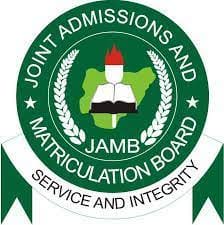CJN Ariwoola Vows Robust Judiciary Before Retirement
The Chief Justice of Nigeria, Justice Olukayode Ariwoola, criticized the work ethics of certain judicial officers, expressing concern over questionable judgements and the misuse of interlocutory orders.
He emphasized his commitment to enhancing the Judiciary’s integrity before his retirement in August. The CJN’s remarks were delivered during his keynote address at the Court of Appeal’s Two-Day Workshop for the
Review of the 2023 Election Petition Tribunals/Court and Appeals in Abuja.
He strongly condemned the behaviour of some judicial officers, stating that such actions undermine the credibility of the country’s judicial system, and offenders will face the consequences.
He said, “We have been treated to an unpalatable cocktail of misleading and conflicting judgments as well as frivolous interlocutory orders emanating from courts of coordinate jurisdiction which attempts to make a mockery of our judicial system.
“This is largely an embarrassment to our jurisprudence, and we will not take it lying low. Punitive measures must be taken against such erring judges.”
The Chief Justice of Nigeria emphasized his goal to leave behind a strong and prosperous Judiciary that will be a source of pride for Nigerians and the entire African continent as he prepares for retirement in August.
He cautioned judicial officers against engaging in behaviour unbecoming of their position, warning that those who do so will not only be dismissed but will also face the consequences.
Justice Monica Dongban-Mensem, the president of the Court of Appeal, stressed the importance of the task at hand for the 2023 election tribunal judges and acknowledged the difficulties and challenges they will face.
She highlighted that a significant number of Judges have been reassigned from the Judicial system to focus on the electoral process.
She said, “This workshop is important because we are dedicated, we are committed to ensuring that our electoral process is seamless.”
She requested amendments to be made to the Nigerian constitution and the electoral laws.
She highlighted specific sections that needed to be revised in anticipation of the 2027 general elections, such as sections 187 of the Nigerian Constitution, 1999, and sections 233, 246, and paragraph 285 of the Electoral Act, 2022.
“Section 285, I think, in the process, is rather poor draftsmanship or so,” Monica said.
The Attorney-General of the Federation and Minister of Justice, Prince Lateef Fagbemi, praised the review exercise and highlighted the judiciary’s crucial role in stabilizing the nation’s electoral process.
He specifically pointed out the significant contribution of the Court of Appeal in shaping and reinforcing electoral jurisprudence through its constitutional duties.
Stressing the workshop’s importance, he stated that it is essential for Nigeria’s democracy as it allows for a thorough examination of the strengths and challenges in judicial proceedings related to the previous electoral cycle.
Furthermore, he mentioned that the outcomes and suggestions from the workshop will serve as valuable guidance for stakeholders in preparation for the upcoming electoral cycle.





